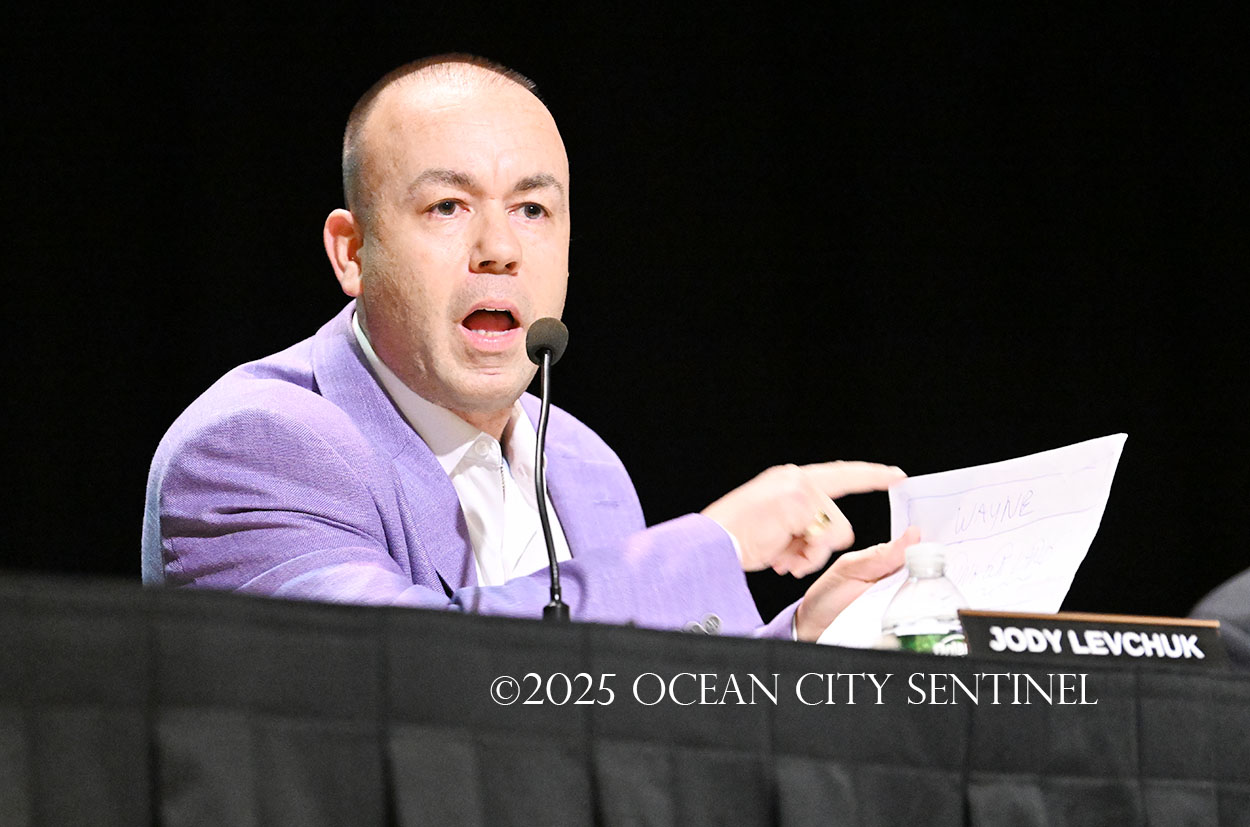City Council agrees to settlement after taking the property in 2018
OCEAN CITY — City Council cast the final vote Jan. 11 to settle a years-long, $20 million saga involving the acquisition of land from Klause Enterprises.
Members unanimously approved bonding for another $9.9 million to purchase the former Chevrolet dealership and create a stretch of open space from the Ocean City Free Public Library to the Emil Palmer Field on the north side of 16th Street. That plan also involves the taking of the adjacent Palmer Center, which has yet to be settled.
Before the vote, city resident Bill Hartrantf wanted to know whether the city would continue to fight the inflated cost of the property.
“Are you going to prevent the Klauses from becoming some say unjustly enriched by bullying the city and challenge a verdict where the jury didn’t even decide the question it was empaneled to decide or are you going to be known as a council of quitters?” he said.
City Councilman Tomaso Rotondi later said it was time to throw in the towel.
“Every day that goes by the taxpayers are losing money on this. Do we continue to let the money accrue or do you stop it now? There is no sense in fighting it, just stop the bleeding and move forward,” Rotondi said following the vote.
The funding is in addition to more than $10 million City Council previously bonded for the purchase of the property, which is bordered by 16th and 17th streets and Haven and Simpson avenues.
The total amount bonded, $19,007,400, includes the new $9.9 million plus $6,217,750 authorized by the original bond ordinance and $337,250 authorized by a supplemental bond ordinance in 2020, as well as $2,961,900 authorized by a supplemental bond ordinance in 2022.
The city acquired the land through condemnation in May 2020. At the time, it was owned by brothers Harry and Jerry Klause.
Through a series of missteps and official rulings, the purchase price inflated by about 300 percent. Following years of wrangling, a jury ruled unanimously Oct. 17, 2023, to grant Klause Enterprises $17,860,000 for the property.
Back in 2018, when the city first offered to buy the land, the purchase price agreed upon by the city and the Klause family was $9 million. That process was stopped when citizens group Fairness in Taxes, arguing the lots were overvalued, initiated a successful petition drive that ended up killing the deal.
A later valuation of the land put the cost at $6.9 million but the Klause family did not agree to it, arguing it could make more than $9 million by putting a housing development there.
The city later moved to acquire the land via eminent domain, a process in which the sides try to arrive at a fair market price for the lots. The city had acquired the lots, but as part of the process, the court appoints impartial commissioners to arrive at the price. Meanwhile, interest on the purchase price had begun to accrue.
Since the initial purchase attempt in 2018, and especially since the COVID-19 pandemic began in 2020, real estate prices have soared nationally, and especially on this barrier island.
The city formally started condemnation proceedings with an updated offer of $6.9 million based on the actual date of taking of May 28, 2020.
But in January 2021, since the city failed to deposit payment on the taking date, a judge ruled that the date should be adjusted to Dec. 23, 2020. Based on the modified date of valuation, the value increased by more than 43 percent to $9.9 million.
Klause Enterprises challenged that valuation and in April 2022, commissioners Alan I. Gould and Daniel Kurkowski ruled the value was $13.02 million.
That went back to court and ended with the ruling in October that the property is worth more than $17 million.
“It seems as if something should have been done back in the beginning to prevent the taxpayers from having to pay almost triple the original amount,” city resident Sheila Hartrantf said.
“The city does not agree with the number, but in consultation with officials we have decided it’s in the city’s best interest to resolve this matter,” McCrosson said.
By CRAIG D. SCHENCK/Sentinel staff

